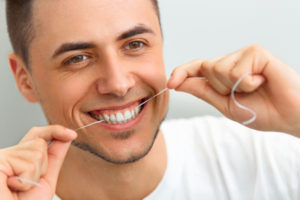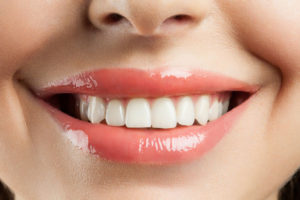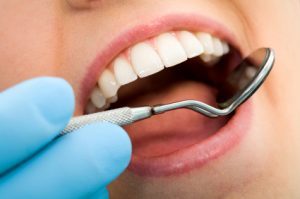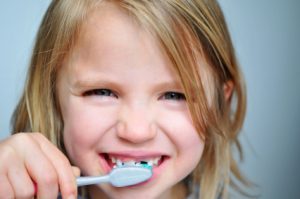 When it comes to maintaining proper oral hygiene, dentists recommend that you cultivate multiple good oral practices, including brushing, flossing, cleaning your tongue and mouth roof, and regular dental checkups with professional cleaning. Dentists agree that an all-inclusive dental care approach is necessary to clean the different areas in your mouth where bacteria and plaque can gather, and possibly lead to tartar, dental cavities, gum disease, and even more serious concerns.
When it comes to maintaining proper oral hygiene, dentists recommend that you cultivate multiple good oral practices, including brushing, flossing, cleaning your tongue and mouth roof, and regular dental checkups with professional cleaning. Dentists agree that an all-inclusive dental care approach is necessary to clean the different areas in your mouth where bacteria and plaque can gather, and possibly lead to tartar, dental cavities, gum disease, and even more serious concerns.
Yet, some people are reluctant about flossing, and tend to avoid it altogether. Do they perhaps think that it is not as necessary if you brush your teeth properly, twice a day?
What Do Scientists Think About Flossing?
Studies performed to identify the benefits of flossing have yielded different results. One study involving school children who had their teeth flossed five days per week – by a professional hygienist – reported a 40 percent decrease in risk of cavities. However, there was no change for those who were trained to floss and asked to do it on themselves. That said, the lack of positive results may be attributed to the poor tooth-brushing habits by the children, combined with low exposure to fluoride – the element in fluorine that helps prevent cavities.
Other studies comparing the effects of flossing when combined with brushing on the levels of plaque and gingivitis have shown that flossing provides either minuscule or no reduction in plaque buildup and levels of gingivitis. Considering that studies of professional flossing have shown considerable reduction in plaque buildup, scientists argue that the participants were probably flossing incorrectly.
How to Floss Correctly
Those who floss incorrectly simply insert the string in between the teeth to yank out some bits of food and assume that it’s over, which is wrong. The American Dental Association recommends that you:
- Cut a length of about 18 inches dental floss and hold it between your thumb and fingers using both hands.
- Insert the string firmly but carefully in between your teeth, apply pressure carefully if needed.
- Curve the flossing string into a “C” shape around the side of each tooth and move it up and down gently. Clean both sides of the teeth, and make sure that the floss to reaches under the gum line.
- Discard the floss after use, and never re-use.
- If your gums bleed excessively, stop flossing. Consult your dentist.
Verdict – “Why Should I Floss My Teeth”
Flossing may not be as easy to do as brushing, but it is probably the most effective habit that could help you prevent disease and the need for a dentist. Dentists and scientists agree that flossing will keep your teeth free from decay and sparkling, keep your gums healthy, and protect you from heart disease.
 Everyone wants to look their best, and an easy way to boost the appearance of your smile is with
Everyone wants to look their best, and an easy way to boost the appearance of your smile is with 

 Stained, yellow teeth are often a sight many of us feel uncomfortable about or uneasy with. What most of us don’t realize is that stained teeth are often the direct result of the foods and drinks we consume.
Stained, yellow teeth are often a sight many of us feel uncomfortable about or uneasy with. What most of us don’t realize is that stained teeth are often the direct result of the foods and drinks we consume. Nighttime is regarded – in the wonderful world of dentistry – as one of the most important times of your entire 24-hour day where your mouth should be addressed. The reason why is because a ton of potentially bad things could happen in the 8 hours you spend sleeping. So we’re going to let you in on the best nighttime oral care tips that will allow your mouth to rest comfortably for 8 hours as well.
Nighttime is regarded – in the wonderful world of dentistry – as one of the most important times of your entire 24-hour day where your mouth should be addressed. The reason why is because a ton of potentially bad things could happen in the 8 hours you spend sleeping. So we’re going to let you in on the best nighttime oral care tips that will allow your mouth to rest comfortably for 8 hours as well. There is a lot of emphasis about properly brushing your teeth: using a soft-bristle toothbrush, holding your brush at an angle, and brushing for two-minutes. But before you rinse your mouth, it is important that you clean your tongue for the same reasons you clean your teeth and gums.
There is a lot of emphasis about properly brushing your teeth: using a soft-bristle toothbrush, holding your brush at an angle, and brushing for two-minutes. But before you rinse your mouth, it is important that you clean your tongue for the same reasons you clean your teeth and gums. The cold weather should not keep you from going outside and enjoying the range of winter sports and other fun activities available in your region. However, it is important that you protect your mouth from potential impact with hard surfaces, other players, or balls by wearing a mouthguard during practice or competitions.
The cold weather should not keep you from going outside and enjoying the range of winter sports and other fun activities available in your region. However, it is important that you protect your mouth from potential impact with hard surfaces, other players, or balls by wearing a mouthguard during practice or competitions. Tens of millions of Americans can’t imagine going through a normal day without taking at least one cup of coffee. Whether black, creamy, sweet, or strong, there are both positive and negative sentiments about coffee. But of course, it’s better to receive good news than bad news, and there is more and more research pointing to many benefits of moderate coffee consumption, including improved oral health.
Tens of millions of Americans can’t imagine going through a normal day without taking at least one cup of coffee. Whether black, creamy, sweet, or strong, there are both positive and negative sentiments about coffee. But of course, it’s better to receive good news than bad news, and there is more and more research pointing to many benefits of moderate coffee consumption, including improved oral health.